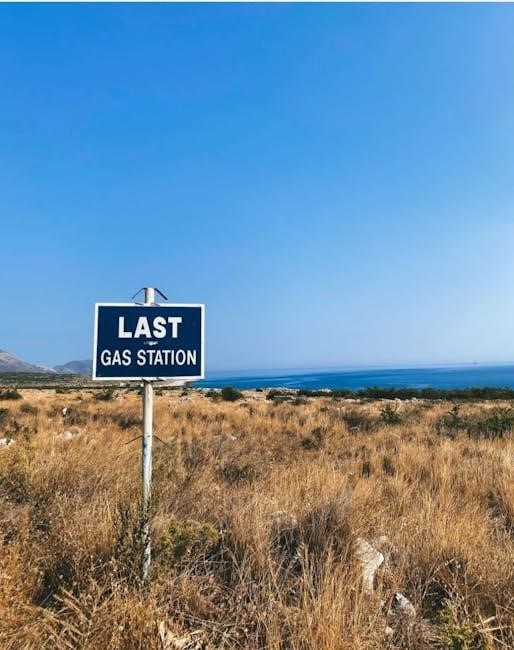International Fuel Gas Code (IFGC): Overview
The International Fuel Gas Code (IFGC) establishes the minimum requirements for fuel gas systems and gas-fired appliances. It uses both prescriptive and performance-related provisions. The IFGC promotes the use of new materials and designs for fuel gas systems.
Purpose and Scope of the IFGC
The primary purpose of the International Fuel Gas Code (IFGC) is to establish minimum safety standards for fuel gas systems and gas-fired appliances. This ensures the safe installation and operation of these systems in residential, commercial, and industrial settings. The IFGC addresses the design, installation, and maintenance of fuel gas piping, venting systems, and appliances.
The scope of the IFGC includes regulations for natural gas, liquefied petroleum gas (LPG), and other fuel gases. It covers various aspects, such as material requirements, sizing of piping, installation methods, and safety controls. The code also addresses combustion air provisions and requirements for appliance venting to prevent carbon monoxide poisoning. Furthermore, the IFGC provides guidelines for gaseous hydrogen systems and motor vehicle gaseous-fuel-dispensing stations, ensuring comprehensive coverage of fuel gas safety.
Editions and Updates: 2021, 2024
The International Fuel Gas Code (IFGC) is updated regularly to incorporate the latest technological advancements, safety practices, and industry standards. The 2021 and 2024 editions of the IFGC include significant changes and revisions compared to previous versions. These updates ensure that the code remains current and effective in addressing emerging challenges in the fuel gas industry.
Key changes in the 2021 IFGC include clarifications and enhancements to requirements for condensate piping and appliance venting. The 2024 IFGC introduces new provisions for combustion air and vent drafting, particularly for natural draft and Category I appliances. These updates reflect ongoing efforts to improve safety, energy efficiency, and performance in fuel gas systems. Staying current with the latest editions of the IFGC is crucial for code officials, contractors, and engineers.

Availability of the IFGC
The International Fuel Gas Code (IFGC) is available for purchase in full PDF versions from the ICC website (iccsafe.org). Some jurisdictions may offer print copies, and free code information can sometimes be found online.
Purchasing the Full PDF Version
To acquire the complete International Fuel Gas Code (IFGC) in PDF format, the primary source is the International Code Council (ICC) website, accessible at iccsafe.org. This platform offers the official and up-to-date version of the code, ensuring you have the correct and legally binding document for reference. Purchasing the PDF version grants you convenient digital access, allowing you to search, print, and reference the code on various devices. Always verify that you are purchasing from the official ICC website to avoid outdated or unauthorized versions. The PDF purchase ensures code compliance.
Accessing Free Code Information Online
While a full, downloadable PDF of the International Fuel Gas Code (IFGC) usually requires a purchase, some information can be accessed for free online. The ICC’s website (iccsafe.org) often provides free access to view the code online, although this may be a limited version. Additionally, some jurisdictions may offer free access to their adopted and amended versions of the IFGC through their official government websites. It’s important to note that free online versions may not include all the content of the full PDF or may have restrictions on printing and downloading. Always cross-reference with official sources.

Key Aspects Covered by the IFGC
The IFGC covers the design and installation of fuel gas systems and gas-fired appliances. It also includes regulations for venting systems and combustion air, ensuring safe and efficient operation of gas-related equipment.
Design and Installation of Fuel Gas Systems
The International Fuel Gas Code (IFGC) provides detailed guidelines for the design and installation of fuel gas systems. This encompasses the proper selection of materials, pipe sizing, and installation methods to ensure a safe and reliable gas distribution network. The code addresses various aspects, including pressure regulation, leak detection, and overpressure protection. Proper design and installation are crucial to prevent gas leaks, explosions, and carbon monoxide poisoning. The IFGC outlines specific requirements for different types of fuel gas, such as natural gas and propane, and their respective system components. Adherence to these regulations is essential for protecting life and property and ensuring compliance with safety standards in residential, commercial, and industrial settings. The code also specifies requirements for system testing and inspection to verify the integrity of the installation.
Gas-Fired Appliances and Venting Systems
The IFGC comprehensively addresses the safe installation and operation of gas-fired appliances and their associated venting systems. This includes requirements for proper appliance selection, clearances, and connections to the fuel gas supply. The code dictates specific venting requirements based on appliance type, input rating, and vent configuration. It covers vent materials, sizing, and termination to ensure proper exhaust of combustion byproducts. Proper venting is critical to prevent carbon monoxide buildup and ensure the efficient operation of gas-fired equipment. The IFGC also includes provisions for combustion air, which is essential for complete and safe combustion. Regular inspection and maintenance of appliances and venting systems are necessary to maintain safety and efficiency. The code specifies requirements for appliance shut-off valves, pressure regulators, and other safety devices to protect against hazards.
Combustion Air Provisions
The International Fuel Gas Code (IFGC) places significant emphasis on providing adequate combustion air for gas-fired appliances. These provisions are essential for ensuring complete and safe combustion, preventing the formation of carbon monoxide, and maintaining appliance efficiency. The IFGC details methods for determining the required volume of combustion air based on appliance input ratings and the tightness of the building’s construction. It outlines acceptable sources of combustion air, including outdoor air, indoor air, and engineered ventilation systems. Requirements vary depending on whether the appliance is located in a confined or unconfined space. The code provides guidance on sizing and locating combustion air openings to ensure proper airflow. Proper combustion air supply is critical for the safe and efficient operation of gas-fired appliances.

Amendments and Local Jurisdictions
The IFGC serves as a model code, often adopted by states and cities. Local jurisdictions frequently amend the IFGC to address specific regional needs or align with existing local regulations and construction practices.
State and City Code Adoptions
The International Fuel Gas Code (IFGC) is the foundation for many state and city codes across the United States. Jurisdictions like Alabama, Alaska, Colorado, Denver, Florida, DuPage County, Wichita-Sedgwick, Louisiana, and Baltimore adopt the IFGC, sometimes with local amendments. New Jersey and Montana are also examples of adopting jurisdictions. These adoptions ensure a baseline standard for fuel gas systems and appliances. State and city adoptions involve incorporating the IFGC, which addresses the design and installation through prescriptive and performance requirements. This promotes safety and consistency in fuel gas regulations. It is important to consult your local jurisdiction for specific requirements.
Impact of Local Amendments on the IFGC
Local amendments significantly shape the application of the International Fuel Gas Code (IFGC) within specific jurisdictions. While the IFGC provides a baseline, state and city governments often modify it to address unique local needs and conditions. These amendments can range from minor clarifications to substantial alterations of the code’s requirements. Jurisdictions may introduce amendments to account for climate, geographical factors, existing infrastructure, or specific local concerns. It is imperative to consult local authorities and code officials to understand the specific IFGC requirements enforced in your area. The combination of the IFGC and local amendments form the legally binding code. Compliance is based on these combined requirements. Ignoring local requirements is not an option.

Significant Changes in Recent IFGC Editions
Recent editions of the IFGC introduce key changes, impacting fuel gas systems and appliances. These updates address new technologies, safety concerns, and efficiency improvements. Reviewing these modifications is crucial for compliance and safety.
2021 IFGC Key Changes
The 2021 IFGC introduced several significant changes impacting fuel gas systems. One key alteration addresses the termination of concealed condensate piping. This requires clear marking to indicate whether it serves as the primary or secondary drain, enhancing safety and maintenance. A new section was also added to recognize arc-resistant CSST products, improving electrical safety in gas systems.
These revisions ensure better alignment between print and PDF versions of the I-Codes with the ICC’s Digital Codes content. The updated code also addresses the design and installation of gas-fired appliances through performance requirements. Stay informed about these changes to ensure compliance.
2024 IFGC Key Changes
The 2024 IFGC incorporates crucial updates related to fuel gas systems and appliances. A notable change is the inclusion of Appendix D- D105.2, which outlines a specific test for combustion air and vent drafting, particularly for natural draft and Category I appliances. This addition ensures safer and more efficient appliance operation.
These changes address the design and installation of fuel gas systems through performance requirements. Furthermore, existing code language has been carefully reviewed and updated to improve clarity and usability. It’s essential to familiarize yourself with these revisions for compliance and enhanced safety in fuel gas installations.
Resources and Support
The ICC Digital Codes website offers comprehensive information and resources related to the IFGC. Educational opportunities and training programs are also available to enhance understanding and proper application of the code.
ICC Digital Codes Website
The ICC Digital Codes website is the primary online resource for accessing the International Fuel Gas Code (IFGC) and related materials. This platform offers a user-friendly interface to navigate the code’s provisions, search for specific requirements, and stay updated on the latest editions and amendments. The website provides various access options, including digital viewing and purchasing full PDF versions of the IFGC.
Furthermore, users can find supplementary information such as code commentaries, training materials, and support documentation to aid in the interpretation and application of the IFGC. The ICC Digital Codes website serves as a central hub for professionals and individuals seeking comprehensive information on fuel gas system regulations and safety standards. It also provides links to relevant resources and tools for code compliance.
Educational Opportunities and Training
To ensure proper implementation and understanding of the International Fuel Gas Code (IFGC), various educational opportunities and training programs are available. These resources cater to professionals, inspectors, and individuals seeking to enhance their knowledge of fuel gas systems and safety regulations. Training programs often cover topics such as code requirements, installation best practices, inspection procedures, and troubleshooting techniques.
These educational initiatives may be offered by the International Code Council (ICC), industry associations, educational institutions, and private training providers. Participants can gain valuable insights into the IFGC’s provisions and develop the skills necessary to comply with its requirements. Continuing education courses and certifications are also available to help professionals stay up-to-date with the latest code changes and advancements in the field.



